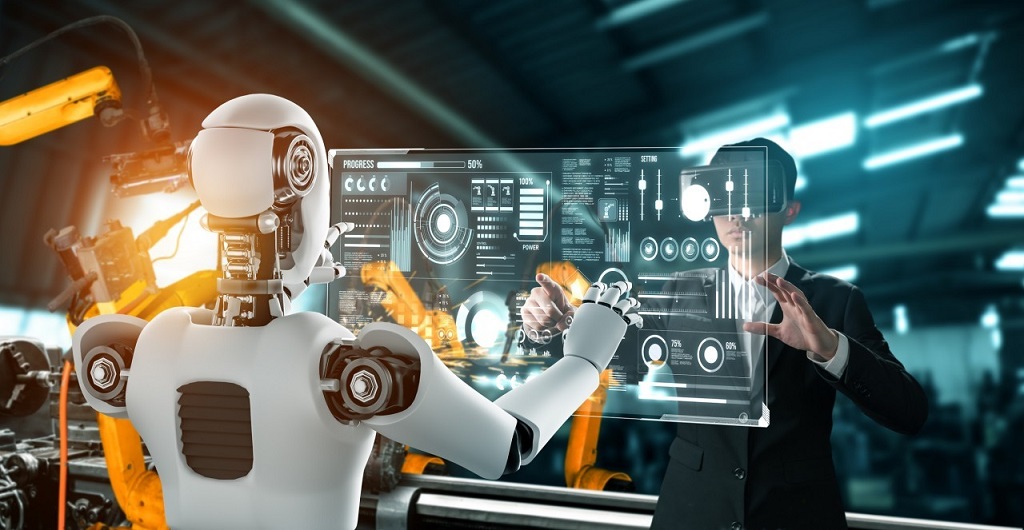The technological landscape is constantly evolving. New breakthroughs emerge at a rapid pace, transforming industries and reshaping the skills employers seek. In this dynamic environment, future-proofing your skills becomes crucial for ensuring long-term career success. This article explores the rise of emerging technologies and provides actionable strategies to prepare yourself for the jobs of tomorrow.
The Rise of Automation and AI:
One of the most significant trends reshaping the workplace is the rise of automation and Artificial Intelligence (AI). Machines are becoming increasingly adept at performing tasks previously considered the exclusive domain of humans. Automation is automating repetitive tasks across various industries, while AI is making inroads into areas like decision-making, data analysis, and even creative endeavors.
The Impact on Jobs:
While automation and AI present undeniable benefits in terms of efficiency and productivity, concerns about job displacement are valid. However, it’s important to remember that these technologies are also creating new opportunities. The focus will shift toward tasks that require uniquely human capabilities, such as creativity, complex problem-solving, and critical thinking.
Skills for the Future:
So, what skills will be in demand in the face of emerging technologies? Here are some key areas to consider:
- Digital Literacy: A strong foundation in digital literacy will be essential for navigating the ever-evolving technological landscape. This includes proficiency in using digital tools, understanding basic coding principles, and being comfortable working in a data-driven environment.
- Adaptability and Lifelong Learning: The ability to adapt to change and continuously learn new skills will be a critical asset. Embrace opportunities to learn new technologies, develop new skill sets, and stay updated on the latest trends in your field.
- Critical Thinking and Problem-Solving: With AI automating routine tasks, the ability to think critically, solve complex problems, and make sound judgments will become even more valuable. Focus on developing these skills alongside your technical expertise.
- Communication and Collaboration: Effective communication and collaboration skills will remain essential in a workplace increasingly reliant on teamwork and cross-functional collaboration. Hone your ability to communicate clearly, collaborate effectively, and build strong relationships with colleagues.
- Creativity and Innovation: As AI takes over more routine tasks, the ability to think creatively and generate innovative solutions will become increasingly sought-after. Nurture your creativity, explore new ideas, and don’t be afraid to think outside the box.
Strategies for Future-proofing Your Skills:
Now, let’s explore specific strategies to prepare yourself for the future:
- Identify Your Skills Gap: Regularly assess your skills and identify areas where you may need to improve. There are numerous online resources and skills assessments available to help you with this process.
- Invest in Online Courses: Online platforms offer a vast array of courses and resources to help you develop new skills or update existing ones. Consider platforms like Coursera, edX, or Udemy to find courses relevant to your field and goals.
- Industry Certifications: Earning industry-recognized certifications can demonstrate your proficiency in specific technologies or skills. These certifications can enhance your resume and make you a more attractive candidate to employers.
- Networking and Mentorship: Build a strong professional network and seek out mentors in your field. These connections can provide valuable insights about job opportunities, industry trends, and skill development resources.
- Embrace New Technologies: Don’t shy away from new technologies. Be proactive in learning about emerging trends and exploring how you can incorporate them into your skillset.
Beyond Technical Skills: Soft Skills Matter Too
While technical skills are crucial, soft skills will continue to play a vital role in the workplace. These include skills like:
- Leadership: The ability to inspire and motivate others, delegate tasks effectively, and navigate conflict remains a valuable asset.
- Emotional Intelligence: Understanding and responding to your own emotions and those of others is critical for building strong relationships and creating a positive work environment.
- Interpersonal Skills: Effective communication, active listening, and collaboration are essential for working effectively within teams.
By cultivating a combination of technical skills, soft skills, and a continuous learning mindset, you’ll be well-equipped to navigate the ever-evolving job market and thrive in the face of emerging technologies.

The Future of Work: A Human-Machine Collaboration
The future of work won’t be about humans versus machines. Instead, it will be about human-machine collaboration. The key lies in leveraging the power of technology to enhance our capabilities and free us to focus on the higher-order tasks that require uniquely human skills. By preparing ourselves with the right skill set, we can ensure that this evolution empowers us and creates a more productive and enriching work experience for all.
Related: What Do Technology Jobs Pay
Conclusion:
The rise of emerging technologies presents both challenges and opportunities. By embracing a lifelong learning mindset, investing in skill development, and cultivating adaptability, we can future-proof ourselves and thrive in this dynamic work environment. Remember, the future of work belongs to those who are willing to learn, grow, and adapt.
Here are some additional points to consider:
- The Importance of Ethics and Responsible Technology: As technology advances, issues like artificial intelligence bias and ethical considerations surrounding automation will become increasingly important. Stay informed about these issues and advocate for responsible development and deployment of technology.
- The Human Touch Remains Irreplaceable: Despite automation, there will always be a need for uniquely human skills like empathy, compassion, and creativity. These skills will be crucial in areas like healthcare, education, and customer service.
- The Future is Collaborative: Collaboration between individuals from diverse backgrounds and expertise will be key to solving complex problems and pushing the boundaries of innovation. Foster your ability to work effectively within teams and embrace collaboration as a key driver of success.
The world of work is constantly evolving, but one thing remains constant – the need for skilled, adaptable, and lifelong learners. By embracing the power of emerging technologies, future-proofing your skills, and fostering a continuous learning mindset, you can unlock a world of exciting possibilities and ensure a fulfilling and successful career in the years to come.
So, take charge of your professional development, embrace the journey of lifelong learning, and prepare to write your own success story in the ever-evolving landscape of work.





